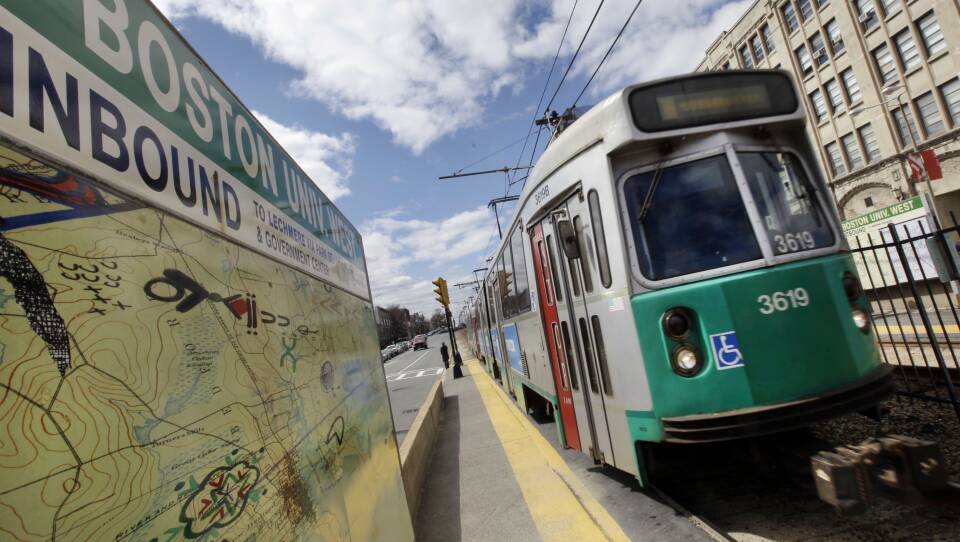The MBTA will eliminate it's in-house cash collection operation and outsource the work to a private contractor, the first major example of Gov. Charlie Baker's MBTA exercising its authority to privatize agency services in the name of cost savings.
The T's control board voted today to approve the two-year, $7.7 million contract to take over the so-called "money room" with logistics firm Brinks.
It's the first time the T has privatized services since Democratic leadership in the Legislature granted Baker's hand-picked control board the authority to do so last year.
"I believe that's on the top of the governor's agenda and [Acting General Manager Brian] Shortsleeve's agenda and they want to privatize every single aspect of the MBTA," IBEW Local 103 President Lou Antonellis said after the vote.
"Private-sector feeding at the public trough is a bad step to take, and once it's gone it never comes back," said Antonellis, who represents some of the maintenance workers who work on the fare collection system.
The Carmen's Union, the T's biggest labor union, picketed outside the facility Thursday morning.
Dozens of MBTA workers at the agency's Charlestown money room will be transferred back to driving buses when Brinks takes over the T's cash collection operation.
"Now that the Board has voted, MBTA staff will move expeditiously to finalize a full transition plan," MBTA Spokesman Joe Pesaturo told WGBH News in an email after the vote.
The T faces an annual budget deficit of over $100 million. The cash collection contract is expected to save the T $8.6 million in the first year.
Shortsleeve said the "flexible contracting" the Legislature authorized is critical to solving the T's more than $100 million annual budget deficit and improving service. Shortsleeve anticipates more resistance from labor as the MBTA looks to privatize services within the core transit function of the T.
"It is also very controversial, especially as the Fiscal Management and Control Board has directed us to evaluate contracting opportunities beyond corporate activities like cash counting into areas like maintenance and operations which account for more than 80 percent of our operating budget," Shortsleeve said.
If today was any indication, the unions are going to fight any attempt at privatization tooth and nail.
Around 100 picketers blocked the MBTA's cash collection facility in Charlestown at the start of service Thursday and prevented vehicles from making collection rounds. MBTA Police Superintendent Richard Sullivan said 30 to 35 people, including Carmen's Union president James O'Brien, were arrested for unlawful assembly Thursday morning, after being asked to move out of the way of the facility's gate.
Brian Lang, the labor representative on the MBTA board, did not attend the meeting, but would have voted against the measure, according to director Steven Poftak, who chaired the meeting.
Antonellis said the problems with the money room originated from years of mismanagement from MBTA overseers, not the workers in the facility.
"And they don't account for that," Antonellis said. "They don't talk about that. They don't want to address any of that. So they just want to take it out on the hard working men and women that try to go to work every day that got to pay their mortgages and pay their bills and buy soccer cleats and buy skates. That's the people they want to take it out on."
Antonellis said he expects the next move to privatize will be the elimination of 50 workers from his union that maintain the automated fare collection system.
They don't have fallback rights," Antonellis said. "They don't have rights to go drive a bus or drive a train. They're going to be out of a job and on the street."





